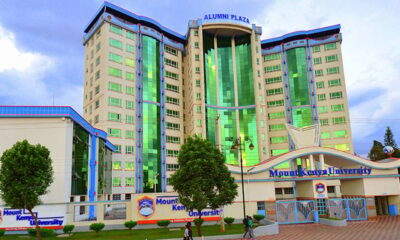

The conferment of International Criminal Court (ICC) Prosecutor Karim Khan with an honorary doctorate of law degree in the 23rd graduation ceremony at the Mount Kenya...


At least 31 private universities are staring at a bleak future after Members of Parliament (MPs) banned the placement of government-sponsored students to the institutions. This...


A case that has been catching dust in different investigative agencies has been awaken by the Auditor General’s report of 2020/21 bringing to life how the...


BY David Matende In less than three months, Kenya’s premier media organisation, Nation Media Group (NMG), has lost close to 80 per cent of its key...